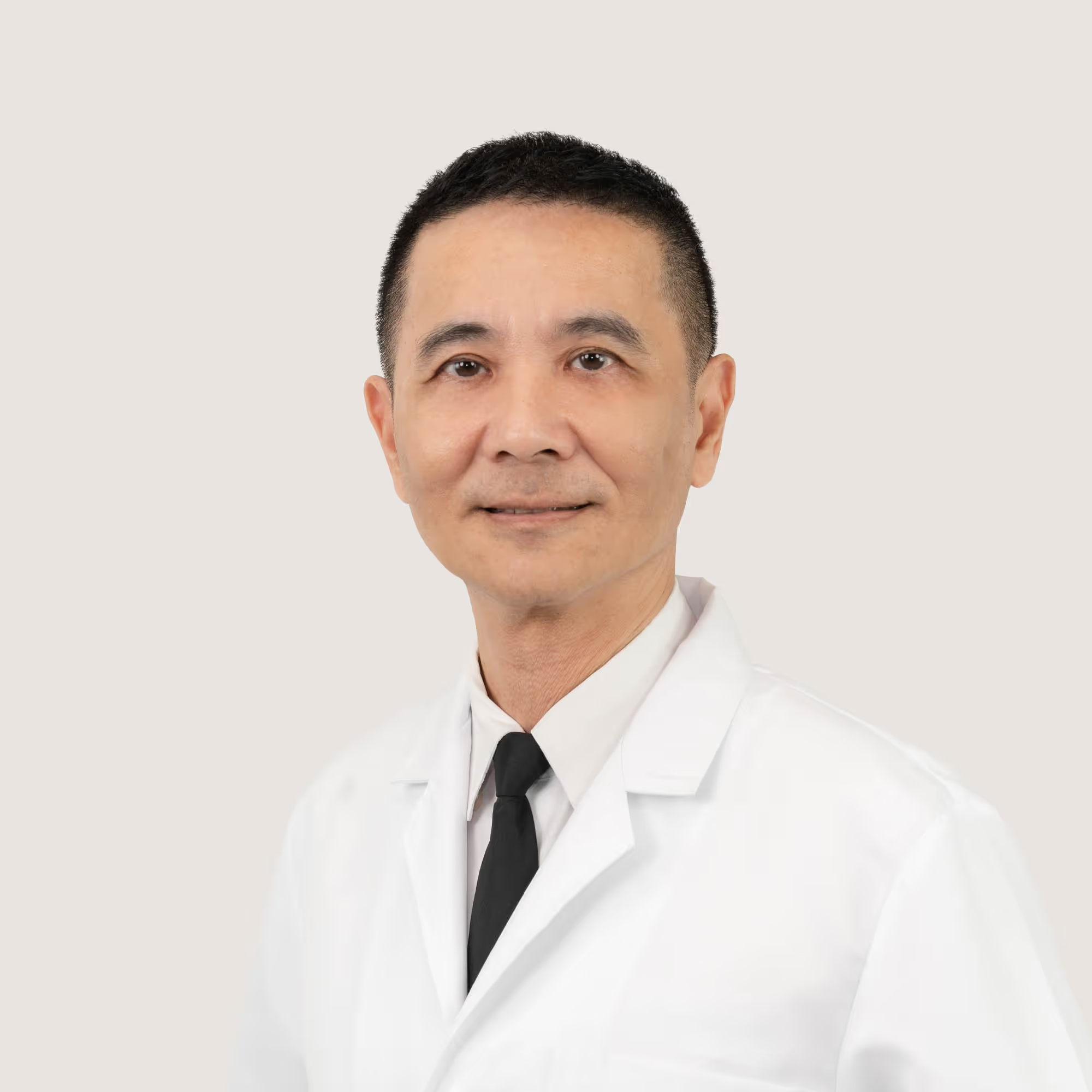เลือกหัวข้อที่อ่าน
- โรคมะเร็งกระเพาะอาหาร มีอาการอย่างไร
- สาเหตุและปัจจัยเสี่ยงที่ทำให้เป็นมะเร็งกระเพาะอาหาร
- โรคมะเร็งกระเพาะอาหาร มีวิธีการวินิจฉัยอย่างไร?
- ระยะของมะเร็งกระเพาะอาหาร
- มะเร็งกระเพาะอาหาร มีวิธีการรักษาอย่างไร
มะเร็งกระเพาะอาหาร
มะเร็งกระเพาะอาหาร (Gastric Cancer / Stomach Cancer) คือ มะเร็งที่เกิดจากเซลล์เยื่อบุกระเพาะอาหารมีการกลายพันธุ์ และแบ่งตัวผิดปกติ ซึ่งสามารถเกิดได้ทุกบริเวณของกระเพาะอาหาร
โรคมะเร็งกระเพาะอาหาร มีอาการอย่างไร
อาการของผู้ที่เป็นโรคมะเร็งกระเพาะอาหารนั้นขึ้นอยู่กับระยะของโรค ผู้ป่วยระยะแรกส่วนใหญ่มักไม่มีอาการ หรืออาการแสดงใด ๆ ที่จำเพาะเจาะจง ในบางรายอาจมีอาการคล้ายผู้ป่วยโรคกระเพาะอักเสบ หรือ แผลในกระเพาะอาหาร ได้แก่ อาการปวดท้อง จุกท้องบริเวณลิ้นปี่ ท้องอืด หรือทานอาหารแล้วอิ่มเร็ว แต่หากรอยโรคมีขนาดใหญ่ขึ้น หรือเริ่มมีภาวะลุกลามผู้ป่วยอาจมีอาการที่รุนแรงขึ้น เช่น เลือดออกในทางเดินอาหารทำให้มีอาเจียนเป็นเลือด หรือถ่ายอุจจาระเป็นสีดำคล้ายยามะตอย มีอาการน้ำหนักลดลงอย่างมาก หรือมีอาการอุดกั้นของทางเดินอาหารส่วนบน เช่น คลื่นไส้อาเจียนอย่างรุนแรง เป็นต้น
สาเหตุและปัจจัยเสี่ยงที่ทำให้เป็นมะเร็งกระเพาะอาหาร
มะเร็งกระเพาะอาหารเกิดจากการแบ่งตัวที่ผิดปกติของเซลล์ อันอาจเกิดจากปัจจัยกระตุ้นต่าง ๆ เช่น การติดเชื้อแบคทีเรียในกระเพาะอาหาร การอักเสบเรื้อรังของกระเพาะอาหาร เป็นต้น
โดยปัจจัยเสี่ยงที่ก่อให้เกิดมะเร็งกระเพาะอาหารอาจประกอบไปด้วย
- โรคกระเพาะอาหารอักเสบเป็นระยะเวลานาน
- การติดเชื้อเอชไพโลไร (Helicobacter pylori) เชื้อแบคทีเรียชนิดหนึ่งที่เข้าสู่ร่างกายและอาศัยอยู่ในกระเพาะอาหาร ทำให้เยื่อบุกระเพาะอาหารอักเสบ และแผลในกระเพาะอาหาร รวมทั้งเพิ่มความเสี่ยงการเกิดมะเร็งกระเพาะอาหารได้
- ผู้ป่วยที่เคยได้รับการผ่าตัดกระเพาะอาหาร
- ปัจจัยทางด้านพฤติกรรมและสิ่งแวดล้ม เช่น การสูบบุหรี่ ดื่มสุรา รูปร่างอ้วนหรือน้ำหนักเกิน การบริโภคอาหารบางชนิด เช่น อาหารที่มีรสเค็มจัด หรืออาหารที่มีส่วนประกอบของสารประกอบเอ็น-ไนโตรโซ
- โรคประจำตัวบางชนิด เช่น ภาวะโลหิตจางเรื้อรังและรุนแรง (Pernicious anemia) ที่พบร่วมกับกระเพาะอาหารอักเสบเรื้อรัง
เมื่อไหร่จึงควรพบแพทย์?
ควรปรึกษาแพทย์หากคุณมีอาการใดๆข้างต้น โดยเฉพาะเมื่อมีอาการคล้ายโรคกระเพาะที่ไม่ตอบสนองต่อการรักษาด้วยยาเป็นระยะเวลาตั้งแต่ 2-3 สัปดาห์ หรือพบว่ามีปัจจัยเสี่ยง เช่น มีบุคคลในครอบครัวเป็นมะเร็งกระเพาะอาหาร หากแพทย์พบว่ามีความเสี่ยงหรืออาการบ่งชี้ที่อาจเกิดโรคมะเร็งกระเพาะอาหาร แพทย์จะทำการทดสอบเพื่อวินิจฉัยโดยละเอียด หรืออาจส่งตัวคนไข้ไปยังแพทย์ผู้เชี่ยวชาญต่อไป
โรคมะเร็งกระเพาะอาหาร มีวิธีการวินิจฉัยอย่างไร?
การส่องกล้องตรวจกระเพาะอาหารส่วนต้น
การส่องกล้องตรวจกระเพาะอาหารส่วนต้น (Upper Endoscopy) เป็นเครื่องมือหลักในการวินิจฉัยมะเร็งกระเพาะอาหาร โดยแพทย์จะใส่กล้องส่องตรวจขนาดเล็กผ่านเข้าทางปาก ตรงไปยังกระเพาะอาหาร และทำการเก็บตัวอย่างชิ้นเนื้อจากบริเวณที่สงสัยเพื่อนำไปตรวจทางพยาธิวิทยาต่อไปต่อไป นอกจากนี้ด้วยเทคโนโลยีภาพชั้นสูงในกล้องส่องทางเดินอาหารปัจจุบันทำให้สามารถวินิจฉัยมะเร็งกระเพาะอาหารระยะแรกได้อย่างรวดเร็วขึ้น
ทั้งนี้แพทย์อาจทำการวินิจฉัยเพื่อประเมินระยะของโรค โดยอาศัยการทดสอบดังต่อไปนี้
- การวินิจฉัยด้วยการแสดงภาพ (Imaging test) แพทย์อาจทำการประเมินระยะของโรคโดยอาศัยการทำซีทีแสกน (CT scan) และ PET/CT Scan
- การผ่าตัดสำรวจ แพทย์อาจแนะนำการผ่าตัดสำรวจเพื่อสืบหาการแพร่กระจายของมะเร็จที่อาจลุกลามไปยังบริเวณอื่นของร่างกาย โดยการผ่าตัดสำรวจนี้อาศัยการส่องกล้องเข้าไปทางรอยผ่าตัดขนาดเล็กที่บริเวณหน้าท้อง
ระยะของมะเร็งกระเพาะอาหาร
ระยะของมะเร็งกระเพาะอาหารจำแนกตามตำแหน่งและการแพร่กระจายของเซลล์มะเร็ง
- ระยะที่ 1 มะเร็งกระเพาะอาหารระยะที่ 1 คือระยะที่เซลล์มะเร็งก่อตัวจำกัดอยู่ในบริเวณเยื่อบุผิวด้านใน หรือมีการแพร่กระจายไปยังต่อมน้ำเหลืองเพียงเล็กน้อย
- ระยะที่ 2 มะเร็งกระเพาะอาหารระยะที่ 2 คือ มะเร็งที่มีการกระจายจากเยื่อบุผิวด้านในไปยังชั้นกล้ามเนื้อของผนังกระเพาะอาหาร หรือลุกลามไปยังต่อมน้ำเหลืองในวงกว้างขึ้น
- ระยะที่ 3 หากมะเร็งลุกลามไปยังชั้นกล้ามเนื้อส่วนที่ลึกมาก หรือแพร่ไปที่ต่อมน้ำเหลืองเป็นบริเวณกว้าง จะได้รับการประเมินเป็นมะเร็งในระยะที่ 3
- ระยะที่ 4 มะเร็งกระเพาะอาหารระยะที่ 4 เกิดขึ้นเมื่อมะเร็งลุกลามหรือแพร่กระจายไปยังส่วนอื่นที่ห่างไกลจากบริเวณกระเพาะอาหาร
มะเร็งกระเพาะอาหาร มีวิธีการรักษาอย่างไร
วิธีการรักษาโรคมะเร็งกระเพาะอาหารขึ้นอยู่กับระยะและเงื่อนไขของโรคในคนไข้แต่ละราย โดยวิธีการรักษาอาจประกอบไปด้วยวิธีการดังต่อไปนี้
การผ่าตัดมะเร็งกระเพาะอาหาร
แพทย์มักแนะนำวิธีการผ่าตัดกระเพาะอาหารเพื่อจำกัดและควบคุมมะเร็งไม่ให้ลุกลามไปยังบริเวณอื่นของร่างกาย โดยการผ่าตัดนี้จะถูกพิจารณาตามเงื่อนไขของคนไข้แต่ละราย ทั้งนี้บางส่วนของกระเพาะอาหารอาจถูกตัดออกไปด้วย วิธีการผ่าตัดกระเพาะอาหารมีดังต่อไปนี้
-
การส่องกล้องเพื่อตัดเลาะเยื่อบุผิวกระเพาะอาหาร
ในมะเร็งกระเพาะอาหารระยะเริ่มต้น ที่เนื้อมะเร็งยังไม่ลุกลามไปยังชั้นลึกของผนังกระเพาะอาหาร และอวัยวะอื่น ๆ สามารถทำการตัดเนื้อผิวส่วนที่เป็นมะเร็งผ่านกล้องส่องกระเพาะอาหารเพียงอย่างเดียวได้ โดยไม่ต้องทำการผ่าตัดเปิดหน้าท้อง
-
การผ่ากระเพาะอาหารออกบางส่วน
การผ่าตัดนี้จะทำการผ่านำมะเร็งออก โดยแพทย์อาจทำการตัดกระเพาะอาหารบางส่วนและเนื้อเยื่อโดยรอบบางส่วนออกไปด้วย โดยที่ผู้ป่วยยังคงมีกระเพาะอาหารเหลืออยู่
-
การผ่าตัดกระเพาะอาหารออกทั้งหมด
กระเพาะอาหารทั้งหมดและเนื้อเยื่อโดยรอบบางส่วนถูกตัดออก ทั้งนี้แพทย์จะทำการต่อหลอดอาหารเชื่อมกับลำใส้เล็ก เพื่อทำหน้าที่ย่อยอาหารและดูดซึมอาหาร แทนกะเพาะอาหารที่ถูกตัดออกไป
-
การผ่าตัดเลาะต่อมน้ำเหลือง เพื่อสำรวจหาดมะเร็ง
ต่อมน้ำเหลืองในบริเวณช่องท้องจะถูกผ่าเลาะออก เนื่องจากต่อมนำเหลืองคือส่วนที่รับการแพร่กะจายของเซลล์มะเร็ง ทั้งนี้แพทย์จะนำตัวอย่างของต่อมน้ำเหลืองที่ตัดออกไปวิเคราะห์เพื่อหาเซลล์มะเร็งต่อไป
-
การผ่าตัดเพื่อควบคุมบรรเทาอาการ
เพื่อป้องกันและชะลอการเติบโตของมะเร็งที่รุนแรงขึ้น หรือเพื่อรักษาภาวะแทรกซ้อนที่เกิดจากโรค วิธีดังกล่าวกระทำขึ้นเพื่อบรรเทาอาการของโรค และช่วยให้คนไข้รู้สึกสบายขึ้นเท่านั้น ไม่ใช่การกำจัดเซลล์มะเร็ง
การบำบัดโดยการฉายรังสี
การบำบัดโดยการฉายรังสี คือการกำจัดเซลล์มะเร็งโดยอาศัยลำแสงพลังงานสูง โดยการฉายรังสีแบ่งเป็น 2 ประเภท ได้แก่
- Adjuvant Radiation แพทย์ใช้การฉายรังสีแบบ Adjuvant radiation เพื่อทำการกำจัดเซลล์มะเร็งที่อยู่ในบริเวณกระเพาะอาหารหรือหลอดอาหารตามหลังการผ่าตัดก้อนมะเร็งออกไปแล้ว
- Neoadjuvant Radiation แพทย์มักใช้การฉายรังสีแบบ Neoadjuvant radiationหรือ คือการให้ฉายรังสีก่อนทำการผ่าตัด เพื่อทำให้เนื้องอกมีขนาดเล็กลง และง่ายต่อการผ่าตัดออก
ทั้งนี้การฉายรังสีอาจก่อให้เกิดผลข้างเคียงเช่น ท้องเสีย อาหารไม่ย่อย และคลื่นไส้อาเจียน โดยคนไข้ที่ได้รับการฉายรังสีในบริเวณหลอดอาหารอาจมีอาการกลืนลำบาก โดยแพทย์อาจทำการใส่ท่ออาหารในช่วงการรักษา จนกว่าหลอดอาหารจะมีอาการดีขึ้นและทำงานได้ตามปกติ นอกจากนี้ แพทย์อาจทำการฉายรังสีร่วมกับวิธีเคมีบำบัดเพื่อช่วยส่งเสริมการผ่าตัด
เคมีบำบัด
แพทย์อาจเลือกใช้เคมีบำบัดเพื่อกำจัดเซลล์มะเร็ง ที่ลุกลามไปยังบริเวณอื่น โดยจำแนกเคมีบำบัดออกเป็น 2 ประเภทตามวัตถุประสงค์ของการรักษา
- เคมีบำบัดชนิด Adjuvant เคมีบำบัดชนิด Adjuvant มีวัตถุประสงค์เพื่อกำจัดเซลล์มะเร็งที่ยังหลงเหลืออยู่หลังการผ่าตัด
- เคมีบำบัดชนิด Neoadjuvant เคมีบำบัดชนิด Neoadjuvant คือการให้เคมีบำบัดก่อนการผ่าตัดเพื่อช่วยให้เนื้องอกมีขนาดเล็กลงและง่ายต่อการผ่าตัดออก
นอกจากการกำจัดเซลล์มะเร็งแล้ว แพทย์อาจใช้วิธีการเคมีบำบัดเพื่อบรรเทาอาการของโรคมะเร็งกระเพาะอาหารด้วย
การรักษาด้วยยามะเร็งแบบมุ่งเป้า
วิธีการรักษาด้วยยามะเร็งแบบมุ่งเป้า จะมุ่งไปที่โปรตีนชนิดหนึ่งที่ผิวเซลล์มะเร็ง เรียกว่า human epidermal growth factor receptor 2 (HER2) ที่จะพบอยู่ได้ในเซลล์มะเร็งกระเพาะบางชนิด การรักษารูปแบบนี้จะทำลายแค่เซลล์ที่มีตัวรับโปรตีนเหล่านี้ซึ่งส่วนใหญ่คือเซลล์มะเร็ง และจะคงไว้ซึ่งเซลล์ที่ปกติ ตัวรับโปรตีนดังกล่าวมีหน้าที่หล่อเลี้ยงให้เซลล์มะเร็งเต้านมสามารถจะเจริญเติบโตและมีชีวิตรอด การรักษาด้วยยามะเร็งแบบมุ่งเป้าจะเข้าไปขัดขวางกลไกลของตัวรับโปรตีนนี้โดยตรง
นอกจากนี้ยังมีการรักษาด้วยยามะเร็งแบบมุ่งเป้า ชนิดที่ออกฤทธิ์ผ่านกลไกล Vascular endothelial growth factor receptor 2 (VEGFR) โดยยามุ่งเป้าชนิดนี้จะไปทำลายโปรตีน VEGFR ซึ่งเป็นโปรตีนที่ช่วยให้มะเร็งกระเพาะอาหารมีการแบ่งตัวและเติบโตขึ้น
การรักษาด้วยภูมิคุ้มกันบำบัด
การรักษาด้วยภูมิคุ้มกันบำบัดจะช่วยระบบภูมิคุ้มกันของผู้ป่วยในการต่อสู้กับเซลล์มะเร็ง เมื่อมีเซลล์มะเร็งปรากฎในร่างกาย ระบบภูมิคุ้มกันที่ทำหน้าที่ทำลายเซลล์มะเร็งอาจจะไม่สามารถต่อสู้กับเซลล์มะเร็งได้ เพราะเกิดการขัดขวางจากโปรตีนที่ผลิตโดยเซลล์มะเร็ง วิธีการทำงานของภูมิคุ้มกันบำบัดคือจะเข้ามาแทรกระหว่างการทำงานของกระบวนการดังกล่าว และกระตุ้นให้ระบบภูมิคุ้มกันกลับมาต่อต้านเซลล์มะเร็ง















